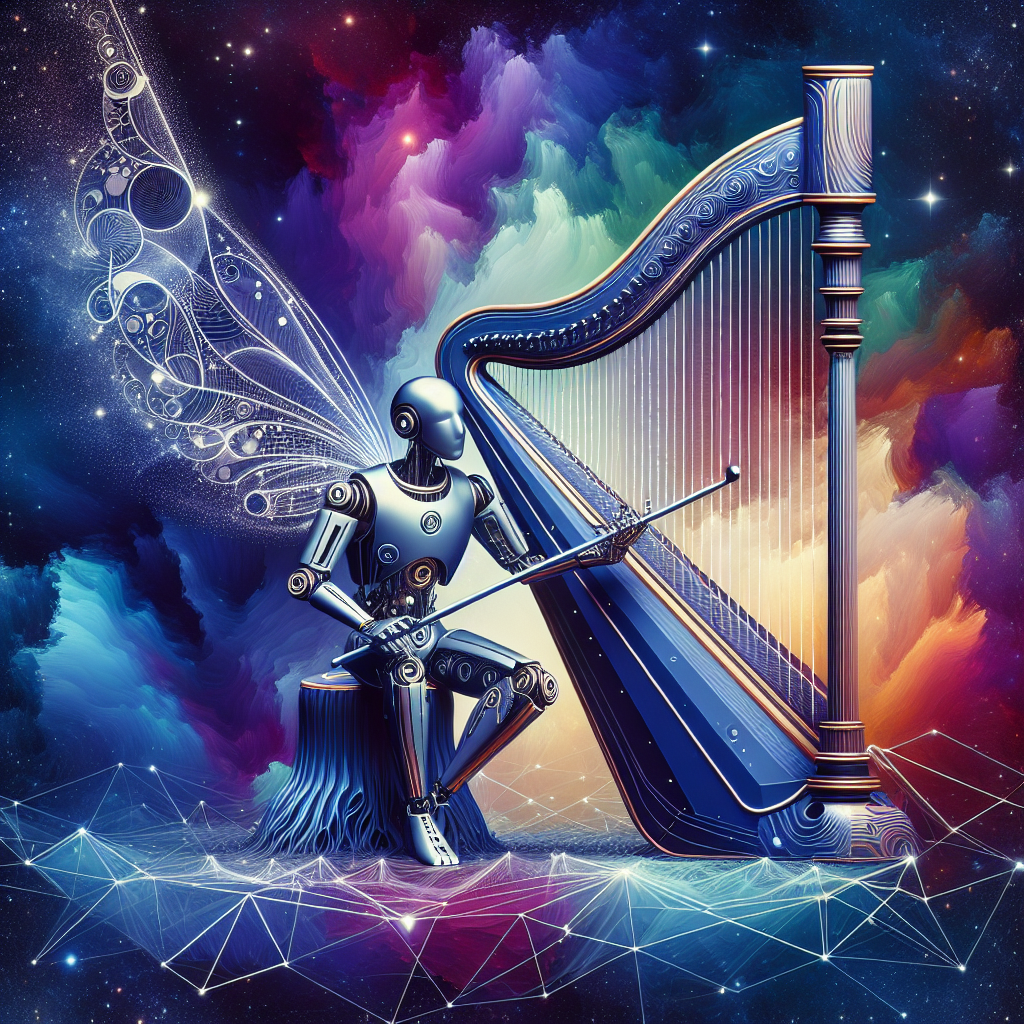Artificial intelligence has been making waves in the music industry in recent years, with AI-generated music becoming increasingly prevalent. While some may be skeptical of the idea of machines creating music, the reality is that AI has the potential to revolutionize the way we create and consume music. In this article, we will explore the aesthetic qualities of AI-generated music and how it is changing the landscape of the music industry.
One of the most exciting aspects of AI-generated music is its ability to create unique and innovative sounds that may not have been possible through traditional means. AI algorithms can analyze vast amounts of data and identify patterns and trends that humans may not be able to see. This allows AI to create music that pushes boundaries and challenges conventional notions of what music should sound like.
Another key benefit of AI-generated music is its ability to enhance the creative process for musicians. By using AI tools, musicians can quickly generate new ideas and experiment with different sounds and styles. This can help artists overcome creative blocks and discover new avenues for exploration in their music.
AI-generated music also has the potential to democratize the music industry by providing access to tools and resources that were once only available to a select few. With the rise of AI music platforms and tools, aspiring musicians can now create professional-quality music without the need for expensive recording equipment or studio time. This can help level the playing field and open up opportunities for a more diverse range of artists to enter the industry.
In terms of aesthetic qualities, AI-generated music can vary widely depending on the algorithms and data used to create it. Some AI-generated music may sound robotic and repetitive, while others may be indistinguishable from music created by human composers. The key is for AI developers to fine-tune their algorithms and training data to produce music that is both technically proficient and emotionally resonant.
One of the challenges of AI-generated music is ensuring that it maintains a sense of human emotion and creativity. While AI algorithms can analyze and replicate patterns in music, they may struggle to capture the nuance and depth of human emotion. This is why many AI music platforms and tools are designed to work in collaboration with human musicians, allowing them to inject their own creativity and emotion into the music.
Despite these challenges, AI-generated music has the potential to push the boundaries of what is possible in music creation. By combining the analytical power of AI with the emotional depth of human creativity, musicians can create music that is truly groundbreaking and innovative.
FAQs:
Q: Can AI-generated music be considered original?
A: While AI-generated music is created using algorithms and data, it can still be considered original in the sense that it is a unique creation that has not been heard before. The key is for AI developers to fine-tune their algorithms and training data to produce music that is both technically proficient and emotionally resonant.
Q: How can AI-generated music enhance the creative process for musicians?
A: AI tools can help musicians quickly generate new ideas and experiment with different sounds and styles. This can help artists overcome creative blocks and discover new avenues for exploration in their music.
Q: Will AI-generated music replace human musicians?
A: While AI-generated music has the potential to revolutionize the music industry, it is unlikely to replace human musicians entirely. AI tools can enhance the creative process for musicians and provide new opportunities for exploration, but human creativity and emotion will always play a crucial role in music creation.
In conclusion, AI-generated music has the potential to revolutionize the music industry by pushing the boundaries of what is possible in music creation. By combining the analytical power of AI with the emotional depth of human creativity, musicians can create music that is truly groundbreaking and innovative. While there are challenges to overcome, the aesthetic qualities of AI-generated music are constantly evolving, opening up new possibilities for artists and listeners alike.

